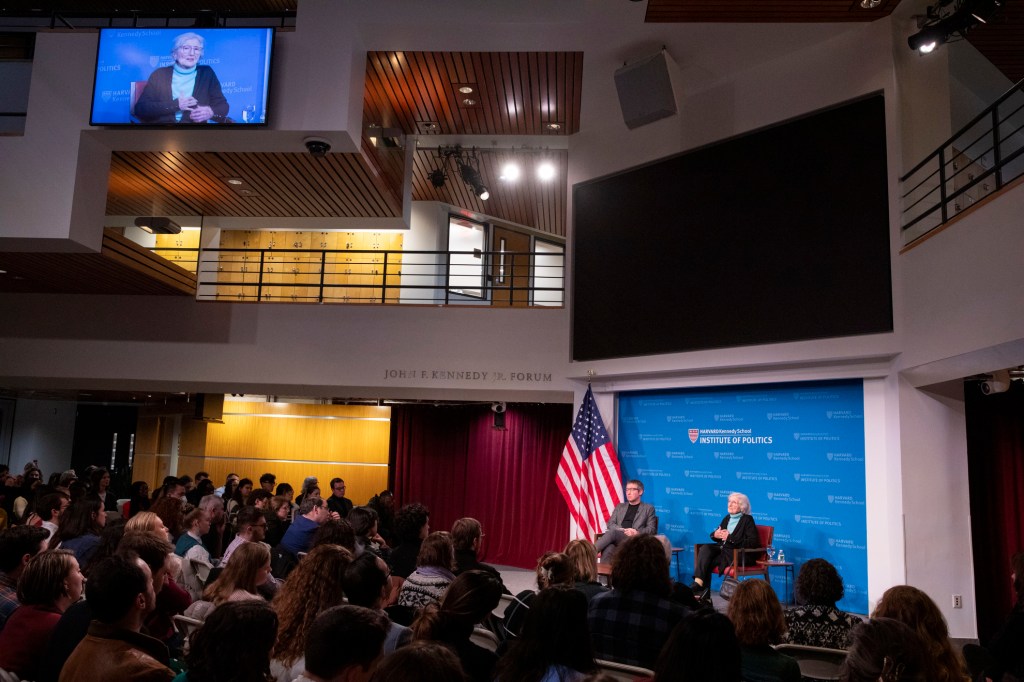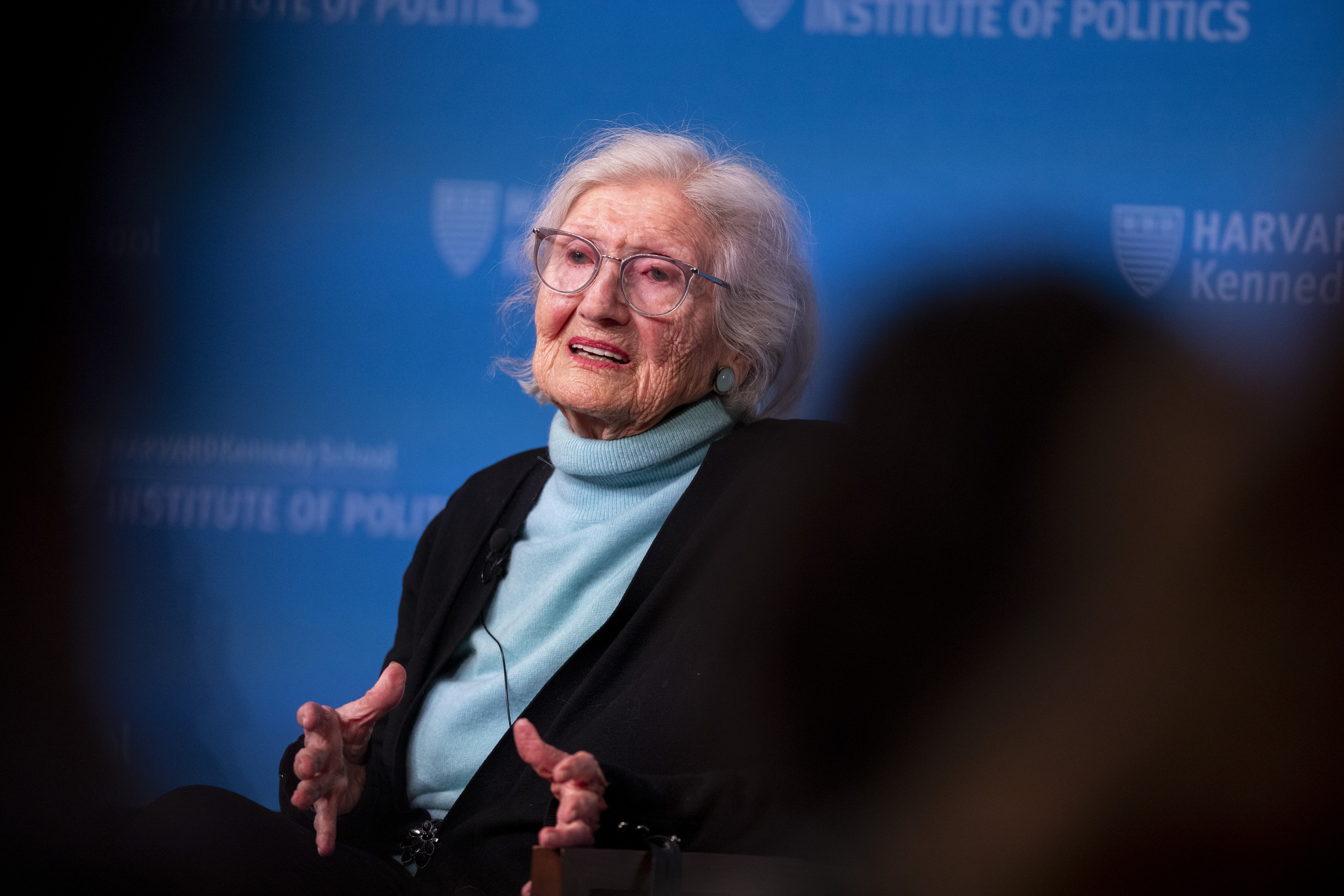Magda Baden slipped out of a packed cattle car at Auschwitz. The 14-year-old lost her grip of her mother’s hand amid the chaotic jostling.
“That’s the last time I saw my mother, my father, and my sister with the baby,” Baden said.
Now 94, Baden recounted in riveting detail the story of her life in a Nazi concentration camp at a JFK Jr. Forum talk Monday evening to mark the 80th anniversary of the liberation of Auschwitz-Birkenau, where an estimated 1 million Jews were murdered by the Nazi regime.
Moderator Mathias Risse, director of the Carr Center for Human Rights Policy at Harvard Kennedy School and Berthold Beitz Professor of Human Rights, Global Affairs and Public Policy, said the conversation was more than simply listening to the recollections of one of the few remaining survivors of the Holocaust.

“It’s about hearing from somebody who was there, thereby becoming somebody who has heard about it from somebody who was there and can pass on that word down [through] the century,” said Risse.
Baden was living in a small town in Hungary with her parents, four of her sisters, and a baby when the Nazis forced them from their home.
She recalls being marched several kilometers to a vast expanse of concrete where guards in lookout towers fired on people randomly so they wouldn’t try to leave.
For days, the men, women, and children slept outside with no shelter, no bathrooms, and little food before being ordered into cattle cars, jammed in with hundreds of others in the dark, headed to southern Poland.
Once at Auschwitz-Birkenau, Baden, three of her sisters, and all the other prisoners turned over their belongings, including their clothes and shoes, and had their heads shaved.
Surrounded by large walls and electrified fences, the sisters were sent to a single barrack with 1,000 women, mostly Hungarian Jews, where they slept en masse on wood planks. Over time, the sisters, wearing lice-infested clothes and fed only one serving of watery rutabaga soup each day, barely recognized each other, she said. “We had no names anymore, no identification.”
By November 1944, Russian troops were closing in on Auschwitz, so the Nazis rushed to kill or move the remaining prisoners, more than 400,000 Hungarian Jews. Baden and her sisters were sent to a satellite site just outside of Bergen Belsen, a death camp in northern Germany.
Baden’s job was to chop stones outside to use as pavement for the road from the camp barracks to a nearby munitions factory. Just before the British liberated Bergen Belsen in April 1945, the prisoners could hear Allied planes flying overhead at night to bomb the factory.
“We were hoping that maybe the Americans or British would come and save us, but the guards said not to even dream that that will happen,” she recalled. The guards told them they intended to force the prisoners to dig a large ditch before shooting them and dumping their bodies there.
As the Allied forces drew near, the guards fled, creating an opportunity for Baden and her sisters to escape. Dressed in their striped prison dresses, they ran deep into a nearby evergreen forest and hid until the British arrived.
They were treated by the Red Cross and given army uniforms as fresh clothes. Though only 15, Baden was asked to ride with the British Red Cross, serving as an interpreter, while aid workers tended camp survivors.
With no money and no home to return to, Baden and one sister made it out of Germany to England; two other sisters joined them later. After finishing high school, Baden received a scholarship to attend Denver University in Colorado and came to the U.S., where she said she tried to blend in and kept her experience to herself.
“There is so much hate and so much distrust. I wish and I hope that people could learn to live like human beings, with each other, side by side. That’s why I talk to high school kids and college kids. I am sorry to see that 80 years later, this is still an important subject.”
Baden said after all these decades it made her sad to think that her story remains so relevant. “There is so much hate and so much distrust. I wish and I hope that people could learn to live like human beings, with each other, side by side. That’s why I talk to high school kids and college kids. I am sorry to see that 80 years later, this is still an important subject.”
Source link

